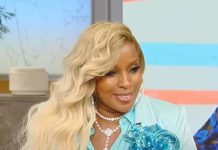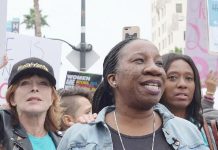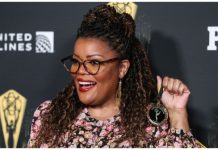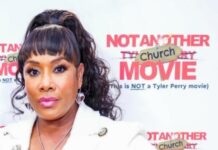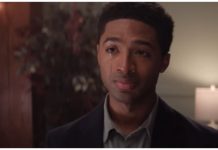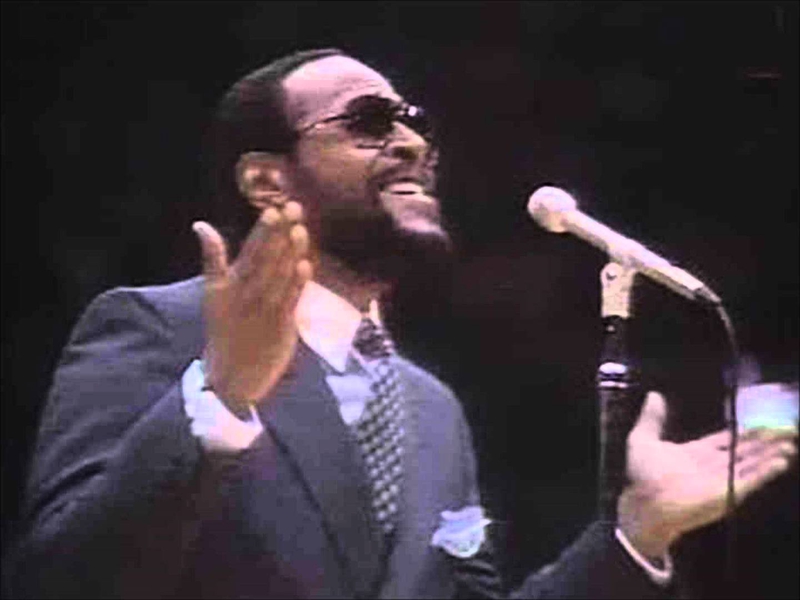
*Before Feb. 13, 1983, the “Star Spangled Banner” was delivered before major sporting events without much variation from the way it was musically arranged in 1814, to the tune of a popular 18th century British drinking song written by John Stafford Smith.
But Marvin Gaye crooned his soulful rendition at the 1983 NBA All-Star Game with an arrangement closer to his own sultry hit at the time, “Sexual Healing,” an unexpected groove that likely had folks thinking, “Mercy, Mercy Me.”
Gaye co-wrote “Sexual Healing” with Odell Brown and David Ritz during a self-imposed two-year exile in Belgium amid drug addiction, depression and attempts at suicide. As Justin Tinsley writes in TheUndefeated.com, “Long before Europe and “Healing,” Marvin wrote the score to the lives of many NBA All-Stars who surrounded him that February afternoon,” among them Julius “Dr. J” Erving, Earvin “Magic” Johnson, Kareem Abdul-Jabbar, Maurice Cheeks, Isiah Thomas, Reggie Theus, Moses Malone, Pat Riley, Bill Laimbeer, Andrew Toney, Alex English, Robert Parish, Jamaal Wilkes and more.
Gaye was the second choice for National Anthem duty that day at the Inglewood Forum. The Lakers had wanted Lionel Richie. His ubiquitous “Can’t Slow Down” album wasn’t released until October of 83, but his monster crossover “Endless Love” with Diana Ross had been dominating radio for 16 months, joined later by his R&B hits “My Love,” “Truly” and “You Are” from his October 1982 self-titled debut. Still, the league office reportedly wasn’t as familiar with Richie’s music and turned down the Lakers’ request.
Dressed in a blue suit jacket and sunglasses, Marvin entered the Inglewood Forum … late. According to reports, he was nowhere to be found that morning, and the Lakers’ director of promotions, Lon Rosen, was unable to reach anyone in his camp. But moments before the early afternoon tipoff, Gaye walked out onto the Lakers’ home court, and into a seminal moment in pop culture.
Watch below:
As the story goes, Gaye deliberately showed up late to avoid having to deal with Lakers personnel, who complained during rehearsal the previous day that his rendition was too long. When Gaye’s track began playing before the game – a single drum beat programmed by Gaye’s guitarist and musical director Gordon Banks, and keyboards laid down by Gaye himself – Lawrence Tanter, the Lakers’ public-address announcer reportedly freaked out. According to Tinsley, he thought, “Ah sh**. They’ve got the wrong tape. This is ‘Sexual Healing.’”
But no. It was still Francis Scott Key’s words. The traditional arrangement, however, was dead and buried alongside John Stafford Smith, where he was likely rolling around thinking, “What’s Going On?”
Ten days later, on Feb. 23, 1983, Gaye was awarded the lone two Grammys of his career for “Sexual Healing.” He thanked his kids, his mom and his fans – but not his father.
That summer, Gaye took off on what would be his last promotional outing, the “Midnight Love” tour.
Here he is singing “Come Get to This” from a stop in Atlanta:
On April 1, 1984, Gaye was shot dead by his own father. Tinsley noted in The Undefeated:
The house where the killing took place was but 7 miles from The Forum. Toward the end of his life, as he battled voices in his head, Gaye still understood the importance of Feb. 13, 1983. “I asked God,” he said, “that when I sang [that anthem] that it would move men’s souls.”
Below is an incredible interview with Gaye done sometime after the American Music Awards in January of 83, and before the Grammys on Feb. 23. He talks about winning an AMA for the first time, and shares his hopes of repeating at the upcoming Grammys. He also admits frustration that Lou Rawls always beats him in his nominated categories (at the 19:34 mark). He also talks about his Motown “training ground,” the cause of his depression and attempted suicide from cocaine, and his views on racial discrimination within the music industry.
We Publish News 24/7. Don’t Miss A Story. Click HERE to SUBSCRIBE to Our Newsletter Now!

